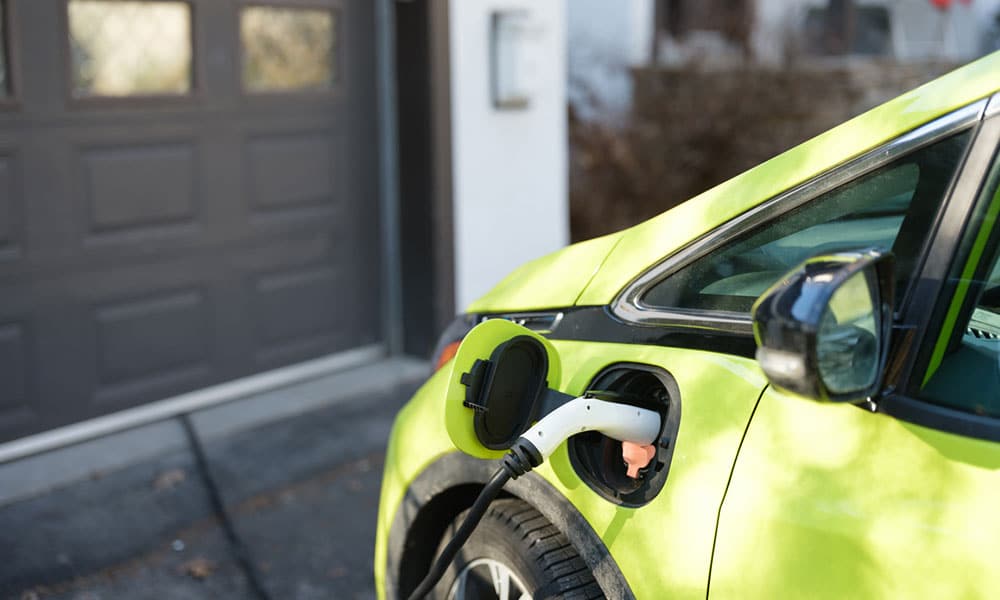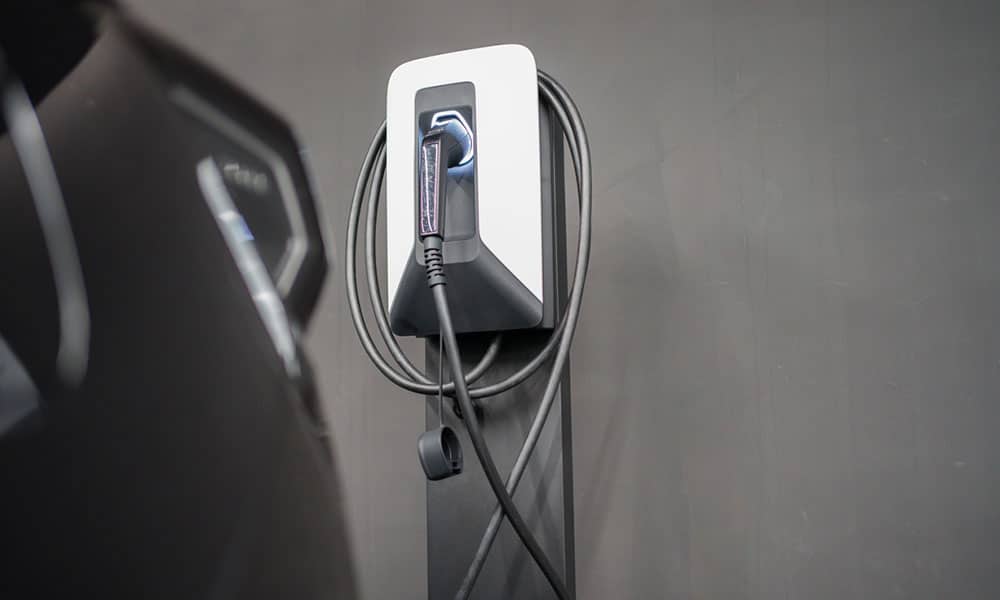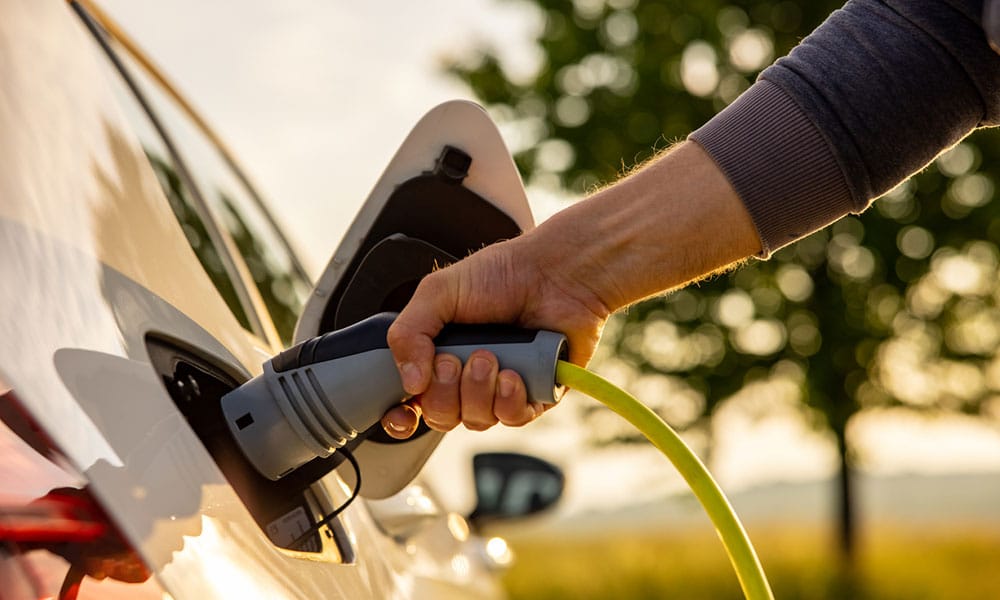So, you’ve decided to join the electric revolution, congratulations! You’re now part of a growing community that’s ditching the gas pump and embracing cleaner, smarter travel.
But before you start picturing yourself gliding silently down the highway with your eco-friendly ride, there’s a crucial step to consider: EV charger installations.
While it might seem like a simple “plug it in and go” task, installing a home EV charger the right way takes more planning than most people think.
And trust us, skipping those details can lead to headaches, hazards, and repair bills that will zap your enthusiasm faster than a dead battery on a Monday morning.
At Expert Electric, we’ve seen our share of charging misadventures. From chargers mounted upside down (yes, really) to electrical panels that couldn’t handle a microwave, let alone a Level 2 EV charger, these mistakes are all too common.
The good news? They’re easy to avoid when you know what to watch out for.
Let’s walk through the six most common blunders we’ve seen homeowners make and how to make sure your EV charging station installation is smooth, safe, and built to last.

Mistake #1: Skipping the Professional Assessment
One of our clients in Burnaby thought installing a home EV charger was as simple as picking a spot in the garage and plugging it in. The problem? Their electrical panel was already working overtime running a hot tub, an AC unit, and a surprisingly power-hungry deep fryer.
Within days, their breakers were tripping more often than they were charging the car.
This happens because EV chargers, especially a Level 2 EV charger, draw a substantial amount of power, often comparable to running a major appliance for several hours straight.
Without knowing your panel’s capacity, you risk overloading the system. Not only does that cause frustration, but it can also lead to overheating, damaged circuits, or even fire hazards.
A professional assessment is like an electrical “check-up” for your home. A licensed electrician will calculate your household’s load, evaluate the panel, and determine if upgrades are necessary.
Sometimes this means adding a dedicated breaker, other times upgrading the panel entirely. Either way, it ensures your charger works safely without competing with your other appliances.
Bottom line? Before buying any charger, call Expert Electric at 604-681-8338. We’ll make sure your system is ready to power your EV without any unplanned “blackout parties.”
Mistake #2: Choosing the Wrong Charger for Your Needs
When it comes to EV charger installations, one size definitely does not fit all. Level 1 chargers, those slow, standard plug-in units are fine for drivers who log only short daily commutes.
But if you regularly rack up mileage, a Level 2 EV charger is the way to go, cutting charging time dramatically.
The trouble starts when people buy the biggest, fastest, and priciest charger they can find without considering their needs. One customer in Surrey invested in a commercial-grade charger designed for fleet vehicles, only to realize their daily drive was a quick 12 km round trip.
The expensive, high-output charger was more than overkill, it was a drain on their budget.
Selecting the right charger means factoring in your driving habits, your vehicle’s battery size, your available electrical capacity, and your budget.
A qualified electrician can walk you through the options, from plug-in models to hardwired units, and match the charger to your situation.
At Expert Electric, we don’t believe in upselling you on something you’ll never fully use. Our goal is to recommend a charger that meets your needs today while keeping an eye on future upgrades, like when you add that second EV to the driveway.
And with our local experience, we can ensure your choice is a perfect match for both your vehicle and your home’s electrical system.
Mistake #3: Ignoring Local Permit and Code Requirements
Skipping permits is one of the fastest ways to turn your EV charging station installation into a costly do-over. Electrical work, especially for a Level 2 EV charger is subject to local building codes.
We’ve seen what happens when this step is overlooked. One homeowner in Vancouver bypassed the permitting process to save time, only to have their insurance company refuse coverage after a minor electrical fire.
Not only did they have to pay for repairs out of pocket, but they also had to rip out and redo the installation to bring it up to code.
Permits aren’t just red tape, they’re a safeguard to ensure the work meets safety standards. They protect you, your property, and even future homeowners if you decide to sell. In many cities, inspections are required to verify proper wiring, breaker sizing, and grounding.
At Expert Electric, we handle the permitting process for you, from paperwork to inspection. Whether you’re in Burnaby, Surrey, or downtown Vancouver, we’ll make sure your installation is code-compliant and worry-free.
Because nothing says “peace of mind” like knowing your charger meets all safety regulations and that your insurance policy still has your back.
Mistake #4: Poor Charger Placement
Believe it or not, one of the most common complaints we hear isn’t about wiring or panel upgrades, it’s about charger placement.
Picture this: You come home after a long day, pull into the garage, and realize your charger cable doesn’t reach the car unless you park at an awkward angle. Or worse, you have to run the cable across a walkway, creating a tripping hazard for everyone in the household.
We’ve also seen chargers mounted behind storage shelves, near water sources, or in spots that leave them exposed to the elements. For outdoor installations, location becomes even more important.
A poorly placed charger can suffer from water damage, corrosion, or cable wear long before it should.
Good placement means thinking ahead. Will you always park in the same spot? Could future EVs in your household have charging ports on the opposite side?
Is the area well-lit and protected from rain or snow?
Our team at Expert Electric takes all of these factors into account. We’ll help you position your home EV charger for convenience, safety, and long-term durability, so you’re never left playing “garage cable limbo” at the end of the day.
And for outdoor setups, our weatherproofing methods ensure your EV charger installations lasts through every season.
Mistake #5: Cutting Costs on Wiring and Breakers
We get it, wiring and breakers aren’t as exciting as the sleek, high-tech look of your new Level 2 EV charger. But while you might be tempted to save a few dollars here, cutting corners on these components can be dangerous.
EV chargers draw a consistent, heavy load for hours at a time. If the wiring is undersized, poorly insulated, or not rated for the amperage, it can overheat, sometimes to the point of melting.
We once responded to a call in Coquitlam where the insulation on the wiring had scorched due to an undersized cable. The homeowner had no idea until the smell of burning plastic filled the garage.
High-quality copper wire, properly sized breakers, and correct grounding aren’t optional, they’re essential for safety and efficiency.
These components ensure your charger operates at peak performance without risking electrical fires or damage to your vehicle’s charging system.
When you choose Expert Electric for your EV charging station installation, we use only top-quality materials that meet or exceed code.
Because in our experience, “good enough” is never good enough when it comes to electrical safety and your charger deserves the same quality care as your EV.
Mistake #6: Treating Installation as a DIY Project
We’re all for DIY projects, just not when they involve high-voltage electrical work. Installing a home EV charger requires more than a few YouTube videos and a trip to the hardware store.
Without the proper knowledge, tools, and permits, you could end up with an unsafe installation, a voided warranty, or a setup that simply doesn’t work.
We’ve been called in to fix “creative” DIY solutions that involved duct tape, extension cords, and even one charger mounted to a piece of plywood leaning against a wall. While we admire the ingenuity, these setups are safety hazards waiting to happen.
Hiring a licensed electrician ensures your EV charger installations meets all code requirements, functions correctly, and keeps you and your vehicle, safe.
It also protects your manufacturer’s warranty and gives you the confidence that your charger will perform reliably for years to come.
At Expert Electric, we take pride in doing the job right the first time. From site assessment to final inspection, we handle every detail so you can enjoy your EV without worrying about what’s happening behind the wall.

Frequently Asked Questions (FAQs)
Q: What is the most common mistake when installing an EV charger?
Q: Do I need a permit to install a home EV charger?
Q: Can I install an EV charger myself?
Q: What type of EV charger should I choose?
Q: How can I avoid poor EV charger placement?
Charge Smarter, Not Harder
Installing a home EV charger is one of the best upgrades you can make for your electric lifestyle. Done right, it means faster charging, safer operation, and a setup that will last for years.
Done wrong, it can lead to costly repairs, safety hazards, and a whole lot of frustration.
By avoiding these six mistakes, skipping the assessment, choosing the wrong charger, ignoring permits, poor placement, cutting corners on wiring, and going the DIY route, you’ll set yourself up for a smooth, efficient, and worry-free EV charging station installation.
Whether you’re in Vancouver, Burnaby, Surrey, or anywhere in the Metro Vancouver area, Expert Electric is here to help you charge smarter. And with our proven EV charger installations expertise, you can trust that your setup will be safe, efficient, and built to last.
Contact Expert Electric Today
- Call Us: 604-681-8338
- Email: info@expertelectric.ca
Let’s make your EV charging experience safe, efficient, and future-proof. And remember: when it comes to electrical work, friends don’t let friends DIY.


